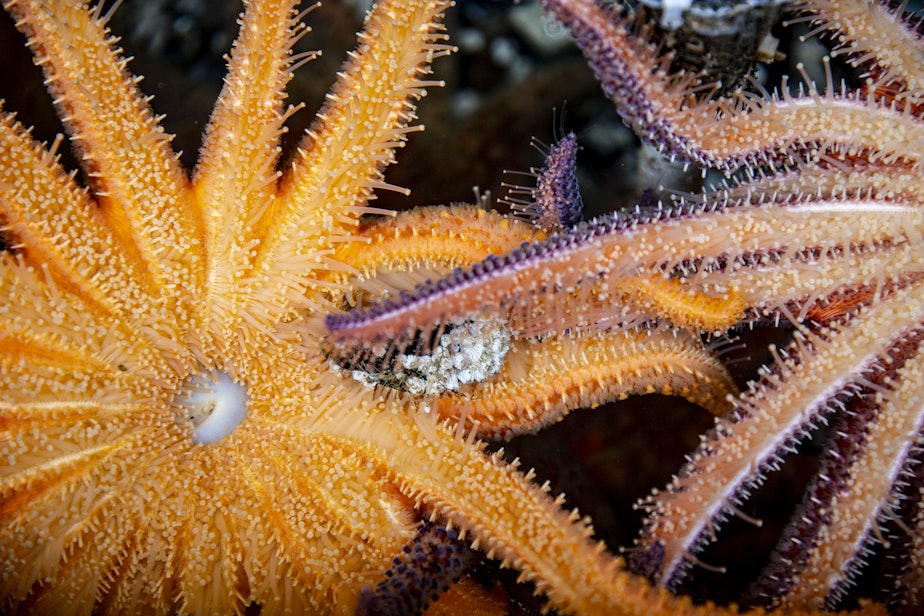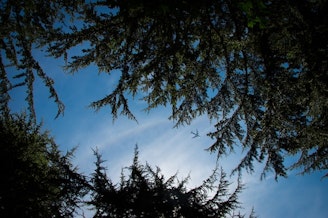Hope springs eternal for the endangered sunflower sea star

Researchers in the San Juan Islands have successfully matured a brood of captive sunflower sea stars, which became critically endangered after a 2013 plague killed 90 percent of the giant ocean creatures. Also, we discuss the need to combat racism and diversify outdoor recreation. Lastly, our weekly conversation with Seattle Mayor Jenny Durkan.
Individual segments are available in our podcast stream or at www.kuow.org/record.
The outdoors should be a reprieve from racism. They're not.
You might think of the outdoors as an opportunity to escape human problems like racism. Yet, 77 percent of national park visitors are white, and racist place names permeate many of our favorite recreation sites. Bill Radke speaks with Crystal Hudelson and Michael Manuel from the local non-profit Climbers of Color about the need to confront racism in outdoor recreation.
A star is born: researchers successfully mature critically-endangered sunflower sea stars
In 2013, a plague of sea star wasting disease began killing scores of west coast sea stars. Hit hardest was the sunflower sea star, the largest of its kind, whose population was decimated by close to 90 percent. But thanks to folks like Jason Hodin, lead scientist at the University of Washington Friday Harbor Marine Biology Lab, the sunflower star is making a rebound in captivity, a vital development that could save our coastal kelp forests.
Seattle Mayor Jenny Durkan 5.6.21
For this week's Thursday with Jenny, Mayor Durkan takes your calls on vaccination, pandemic road closures, and public broadband.




